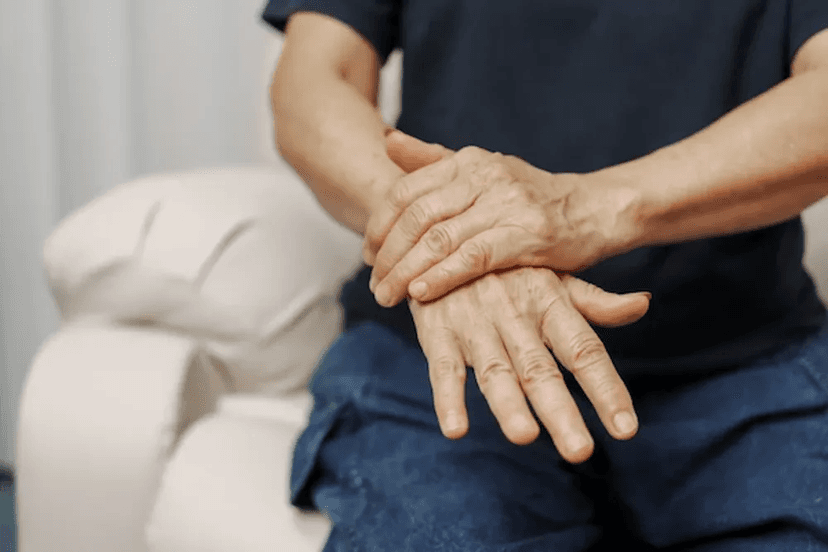Contents
Parkinson’s treatment in Turkey has emerged as one of the most effective and affordable options for patients worldwide seeking advanced neurological care. With specialized neurology centers, experienced surgeons, and state-of-the-art medical technologies, Turkey offers a combination of quality and accessibility unmatched by many countries. Treatments range from medication and neurorehabilitation therapies to advanced procedures like Deep Brain Stimulation (DBS) and experimental stem cell therapies, all performed under international safety and ethical standards.
Leading hospitals such as NP Istanbul Brain Hospital, Liv Hospital, Acibadem, Memorial, Medicana, and Medical Park provide structured, patient-centered programs combining diagnosis, therapy, and long-term follow-up. Prices for DBS surgery range between 18,750 and 25,000 USD, significantly lower than in the US or Europe, while maintaining comparable success rates.
Through A-Medical, international patients can access these top centers effortlessly, receiving end-to-end support that includes hospital selection, travel coordination, translation, and aftercare. With its transparent pricing, personalized guidance, and partnerships with certified neurology specialists, A-Medical ensures a safe, efficient, and comfortable experience for patients pursuing Parkinson’s treatment in Turkey.
Understanding Parkinson’s Disease

Parkinson's disease is a movement disorder of the nervous system that worsens over time. It occurs when nerve cells in the brain, particularly those producing dopamine, become damaged or die. Dopamine is essential for smooth and coordinated muscle movements. The nervous system controls how the body moves, responds, and functions. When dopamine levels fall, motor skills begin to decline and non-motor symptoms may appear as well.
Key facts about Parkinson's disease:
- It affects both physical and cognitive functions over time
- It is most common in individuals over 60 but can also occur earlier
- Early diagnosis and consistent treatment improve long-term outcomes
While the root cause of Parkinson’s remains complex, a reduction in dopamine levels in the brain is the central factor. Dopamine helps control movement and coordination. When dopamine-producing cells begin to die, everyday tasks like walking, writing, or buttoning a shirt become increasingly difficult. Over time, patients may also struggle with sleep issues, anxiety, or memory problems. This holistic impact is what makes Parkinson’s treatment not just about medication, but about preserving quality of life.
Symptoms and Progression of Parkinson’s Disease

People often associate Parkinson’s disease with shaking hands, but symptoms reach much deeper. Tremors, slow movement, muscle stiffness, and balance issues are the most visible signs. However, less visible symptoms of Parkinson's disease like depression, fatigue, and speech difficulties are equally impactful and often overlooked.
The disease follows a pattern of progression. At first, changes are mild and may not interfere with daily life. But as time passes, these symptoms become more persistent. Walking becomes slower, facial expressions may fade, and basic coordination becomes a challenge. Tasks that were once second nature start requiring conscious effort.
As Parkinson’s disease progresses, the need for support grows. This is where treatment plays a vital role not to cure, but to slow the process and improve daily function. Recognizing the symptoms early and starting treatment quickly gives patients the best chance at maintaining independence longer.
What Does a Parkinson’s Disease Treatment Do?

Parkinson’s disease treatment aims to maintain mobility, reduce symptoms, and preserve independence for as long as possible. Since the disease affects dopamine-producing cells in the brain, treatment focuses on restoring functional balance between movement, coordination, and daily life activities. The goal is not only to improve motor control but also to address non-motor symptoms such as sleep disturbances, anxiety, fatigue, and cognitive changes.
Effective treatment helps patients:
- Reduce tremors, stiffness, and slowness of movement
- Improve walking, balance, and fine motor skills
- Maintain speech clarity and facial expressiveness
- Support emotional and cognitive well-being
- Delay or reduce dependence on others for daily activities
Treatment does not stop the progression of Parkinson’s disease, but it can significantly slow its functional decline when initiated early. A structured treatment plan usually includes medication adjustments, physical therapy, speech therapy, psychological support, and in some cases advanced procedures such as Deep Brain Stimulation (DBS). The success of the treatment depends on the patient’s stage of the disease, response to dopamine therapies, and regular medical follow-up.
Types of Parkinson’s Disease Treatment
Parkinson’s disease management is tailored to each patient’s symptoms, lifestyle, and response to therapy. In Turkey, hospitals follow international guidelines and provide a full spectrum of medical and surgical treatment options.
1. Medication Therapy

Medications like Levodopa for Parkinson's Disease and dopamine agonists are used to replace or mimic dopamine. These improve mobility, reduce tremors, and make everyday movements more manageable. Over time, dosing adjustments and careful monitoring are required to avoid motor fluctuations and side effects.
2. Neurorehabilitation Programs

Rehabilitation is a core part of treatment in Turkey. Patients receive personalized physical therapy, gait and balance training, occupational therapy, and speech therapy. These programs help maintain independence, support motor relearning, and improve emotional well-being. Many Turkish centers use technology-assisted therapy, including robotic gait devices and cognitive training systems.
3. Deep Brain Stimulation (DBS)

DBS is recommended for patients who no longer respond well to medication or experience strong side effects. Surgeons place electrodes in specific brain regions to regulate abnormal nerve signals. When successful, DBS reduces tremors, stiffness, and involuntary movements while allowing patients to take lower doses of medication. Turkish neurosurgical teams perform DBS using advanced imaging guidance, strict surgical protocols, and structured post-operative programming sessions.
4. Stem Cell and Regenerative Treatments (Experimental)
Some hospitals in Turkey offer stem cell therapy under ethically approved research frameworks. These treatments aim to protect or repair neural function. Patients must undergo a full evaluation to determine eligibility, and benefits can vary. This option is typically considered only when standard treatments are not sufficient.
Stages of Parkinson’s Disease and Stage-Specific Treatment Options

Parkinson’s disease progresses gradually, and each stage requires a different treatment strategy. In Turkey, neurologists and rehabilitation specialists provide stage-based care, allowing patients to maintain independence for as long as possible while reducing the severity of motor and non-motor symptoms. The goal is to manage symptoms proactively rather than reacting to decline after it occurs.
Stage 1: Early Stage Parkinson’s Disease
Symptoms are mild and often appear on one side of the body. Patients may notice a slight tremor, subtle stiffness, or reduced arm swing while walking.
Primary goals at this stage:
- Protect functional independence
- Prevent motor pattern deterioration
- Support emotional and cognitive well-being
Treatment approach:
- Dopaminergic medication such as Levodopa or dopamine agonists to regulate movement
- Early neurorehabilitation to train gait, posture, and fine motor control before symptoms worsen
- Speech and voice exercises to prevent future voice weakening
- Personalized exercise programs including balance, stretching, and movement rhythm training
Early intervention here delays functional decline significantly. Many Turkish neurology centers emphasize preventive rehabilitation, which is one of the strongest predictors of long-term mobility preservation.
Stage 2: Mild to Moderate Parkinson’s Disease
Symptoms become more noticeable on both sides of the body. Movements slow down, facial expressions may decrease, and daily tasks require more effort.
Primary goals:
- Reduce tremors and stiffness
- Maintain gait symmetry and flexibility
- Prevent social withdrawal and depression
Treatment approach:
- Medication adjustments to smooth motor fluctuations during the day
- Physical therapy focusing on step length, arm swing, and turning mechanics
- Occupational therapy to support dressing, handwriting, coordination, and domestic tasks
- Cognitive and mood support, including structured psychological guidance
- Nutritional planning to maintain muscle and energy stability
At this stage, structured and regular therapy has a strong protective effect. Many clinics in Turkey use robotic gait systems and sensor-based motion analysis to track improvement objectively.
Stage 3: Moderate Parkinson’s Disease with Balance Impairment
Balance issues, posture instability, and fall risk become significant. Walking becomes slower and turning may require multiple steps.
Primary goals:
- Prevent falls and injury
- Improve alignment, stability, and walking coordination
- Support confidence in movement
Treatment approach:
- Intensive neurorehabilitation focusing on step timing, core engagement, and visual cue-based gait strategies
- Assistive walking devices if needed, chosen carefully to preserve independence rather than restrict mobility
- Medication fine-tuning to stabilize motor timing
- Fall-prevention training including obstacle navigation and controlled directional shifts
This is often the stage where patients and doctors begin discussing future eligibility for Deep Brain Stimulation (DBS) if medication starts causing side effects or becomes less effective.
Stage 4: Advanced Parkinson’s Disease
Movement is significantly limited, and the patient may require physical assistance. Medication effectiveness fluctuates, and daily activities become challenging.
Primary goals:
- Reduce severe tremors, rigidity, and motor fluctuations
- Improve comfort and autonomy
- Reduce medication dependency when possible
Treatment approach:
- Deep Brain Stimulation (DBS) becomes a major treatment option if the patient still responds to Levodopa but cannot maintain stable motor control
- High-frequency physical therapy to preserve mobility patterns
- Speech therapy to maintain communication ability
- Psychological and caregiver support programs
In Turkey, DBS is performed in specialized neurosurgical centers with standardized evaluation, imaging planning, and post-operative programming.
Stage 5: Advanced and Severe Parkinson’s Disease
Patients may rely on wheelchairs or caregivers for most daily tasks. However, quality of life improvement is still possible.
Primary goals:
- Comfort, safety, and dignity
- Pain reduction and muscle relaxation
- Emotional support for patient and family
Treatment approach:
- Supportive and adaptive rehabilitation
- Medication optimization for comfort
- In select cases, evaluation for stem cell or regenerative therapy under approved clinical programs in Turkey
- Comprehensive caregiver training
Even at this stage, structured support prevents secondary complications like muscle contractures, anxiety, and isolation.
Why Undergo Parkinson’s Disease Treatment with A-Medical?
A-Medical simplifies the entire treatment journey for international patients by providing medical, logistical, and personal coordination in one continuous process. Parkinson’s care often involves multiple specialists, long-term monitoring, and careful adjustment of therapies. A-Medical ensures that patients are guided at every step, avoiding miscommunication or fragmented care.
What A-Medical provides:
- Matching with neurologists and neurosurgeons who have proven experience in Parkinson’s and DBS
- Transparent treatment plans, pricing details, and hospital selection based on medical need
- Travel planning, airport transfers, interpretation services, and ongoing support
- Coordination of diagnostic tests, medication evaluation, therapy scheduling, and follow-up consultations
- Assistance with extended rehabilitation, device programming after DBS, and remote check-ups
A-Medical focuses on safety, evidence-based treatment, and patient comfort. By ensuring clear communication between patient and medical teams, the company helps create a stable, supportive treatment environment that contributes to better outcomes. For many patients, this guidance reduces stress and allows them to focus on recovery, not logistics.
Why Choose Turkey for Parkinson’s Treatment
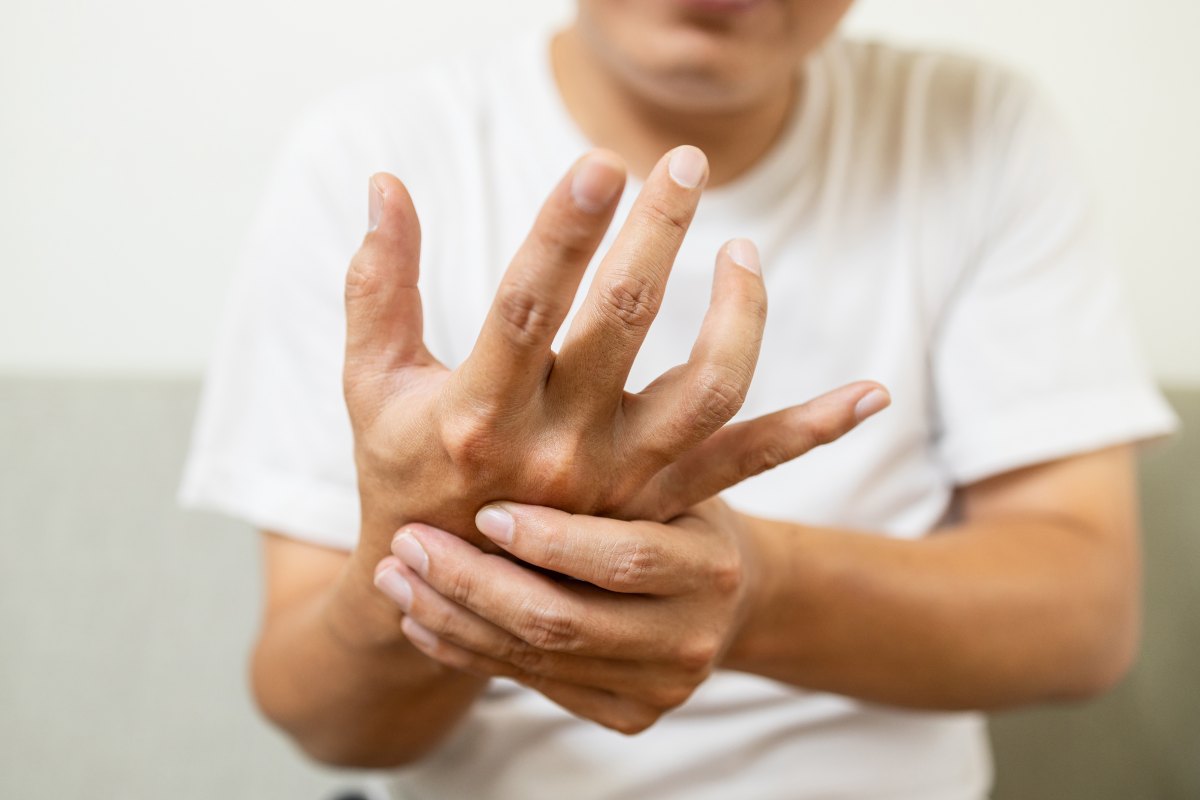
When patients search for effective and affordable Parkinson’s treatment, Parkinson’s treatment in Turkey stands out. The country has invested significantly in healthcare infrastructure, with hospitals offering advanced neurology departments, internationally certified specialists, and high-end treatment technologies.
International patients often face long waiting lists and high costs in their home countries. In Turkey, treatment is faster and more cost-effective, with care that matches or exceeds European and American standards. Medical teams are used to working with patients from different countries and cultures, offering a more personalized and stress-free experience.
Another key advantage is accessibility. From diagnosis to therapy and follow-up, Turkish hospitals provide comprehensive care under one roof. This integrated model reduces delays, ensures continuity, and improves treatment results. Patients do not have to navigate a fragmented healthcare system everything is coordinated from the start.
New Treatment Options for Parkinson’s in Turkey
Medication and Neurorehabilitation Therapies
In the early stages of Parkinson’s disease, medication is the first line of defense. Dopaminergic drugs like Levodopa are prescribed to ease motor symptoms. While these medications don't stop the disease, they significantly improve quality of life by making movement easier and more fluid.
However, medication alone is not enough. Turkish hospitals place strong emphasis on neurorehabilitation. Patients work with physical therapists, speech therapists, and occupational therapists to maintain daily functions. These therapies are not optional extras they are essential components of a long-term care strategy.
Rehabilitation programs in Turkey are structured, personalized, and consistent. They focus not just on symptom relief but also on slowing disease progression and keeping patients socially and physically active.
Deep Brain Stimulation (DBS) Surgery
When medication stops being effective or causes side effects, Deep Brain Stimulation becomes an option. This surgical technique places electrodes in specific parts of the brain to regulate abnormal signals. It’s not for everyone, but for carefully selected patients, the results can be life-changing.
Deep Brain Stimulation in Turkey is available in top hospitals with advanced neurosurgical teams. At NP Istanbul Brain Hospital, patients can choose between two systems:
- Boston Scientific DBS: 25000 USD
- Medtronic DBS: 18750 USD
The surgery is performed under strict protocols by specialists with international experience. The recovery process is monitored closely, and patients receive full support during post-op care. The goal is not only to reduce symptoms but to reduce dependence on medication as well.
Who Is a Candidate for Deep Brain Stimulation (DBS)?
Deep Brain Stimulation in Turkey is recommended for patients who:
- Have been diagnosed with Parkinson’s disease for at least 4–5 years
- Respond to Levodopa, but results fluctuate or cause side effects
- Experience moderate to severe tremors, rigidity, or dyskinesia
- Have overall cognitive function preserved (no severe dementia)
- Are physically fit for surgery after cardiovascular and neurological evaluation
Patients who are not suitable for DBS:
- Patients with advanced dementia or severe cognitive decline
- Patients with uncontrolled psychiatric disorders
- Patients with medical conditions that make surgery unsafe
DBS is not a cure, but it provides long-term symptom relief, reduces medication dosage, and significantly improves daily function and independence.
Risks and Possible Complications of Deep Brain Stimulation (DBS)
While DBS surgery in Turkey is performed by highly experienced neurosurgeons using advanced imaging and surgical navigation systems, all procedures carry some risks. Understanding these helps patients make informed decisions.
Possible surgical risks:
- Infection at the surgical site
- Internal bleeding or stroke (rare but possible)
- Temporary swelling or discomfort
Device-related risks:
- Hardware malfunction or lead displacement
- Need for device adjustments or battery replacement after several years
Neurological and functional risks:
- Changes in speech clarity
- Balance difficulties
- Mood or behavioral changes in some patients
These risks are minimized through careful patient selection, precise surgical planning, and structured post-operative programming. Turkish hospitals follow international safety standards and provide continuous monitoring after DBS.
Stem Cell and Regenerative Therapies
Some hospitals in Turkey offer stem cell therapy for Parkinson's disease as part of experimental treatment programs. These aim to repair or replace damaged neurons and restore lost functions. While not yet part of standard clinical practice, they reflect Turkey’s commitment to medical innovation.
Patients interested in these therapies must undergo detailed evaluations. Stem cell therapy hospitals provide full transparency about risks, benefits, and current scientific evidence. These treatments are performed in regulated environments under ethical approval.
For those exploring all options, stem cell therapies may offer hope but they require careful guidance and expert consultation.
Top Hospitals for Parkinson’s Treatment in Turkey
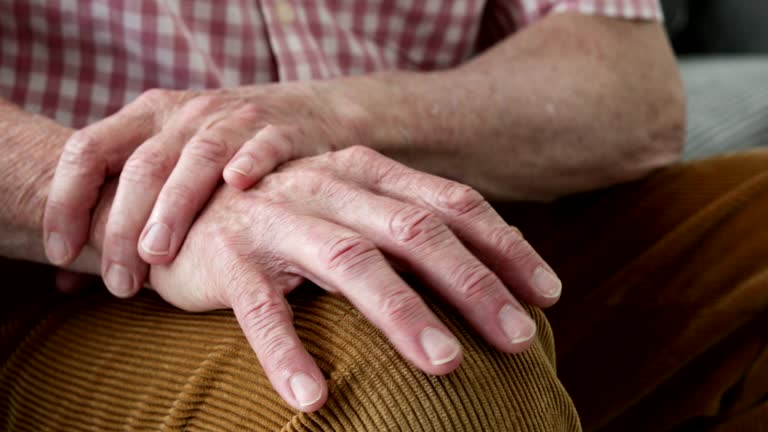
NP Istanbul Brain Hospital
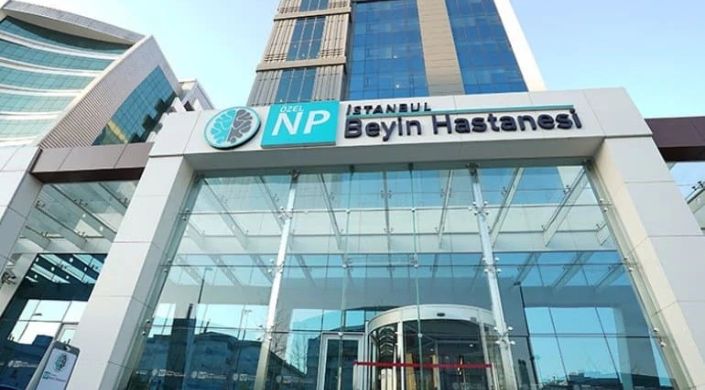
NP Istanbul Brain Hospital is one of the few hospitals in Europe fully specialized in brain and mental health, offering advanced options for Parkinson’s treatment in Turkey. Renowned for its expertise in neurology and cutting-edge neuromodulation technologies, the hospital provides both Deep Brain Stimulation (DBS) surgery and comprehensive neurorehabilitation programs tailored to Parkinson’s patients. With internationally trained specialists, modern equipment, and a patient-centered approach, NP Istanbul Brain Hospital ensures high-quality, effective, and personalized care for individuals seeking the best outcomes in Parkinson’s disease treatment in Turkey.
Medicana Healthcare Group
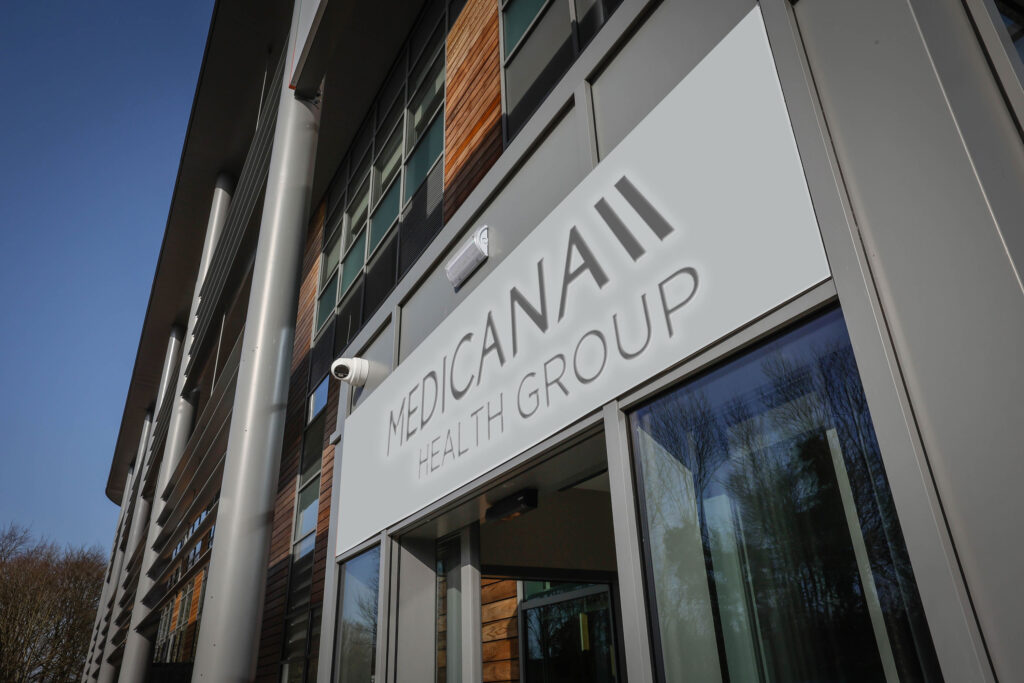
With facilities across the country, Medicana Health Group provides consistent excellence in Parkinson’s disease treatment in Turkey. Patients benefit from the hospital’s modern neurological infrastructure, experienced multidisciplinary teams, and holistic treatment programs that combine medication management, rehabilitation, and advanced surgical options like Deep Brain Stimulation. Medicana’s well-organized international patient coordination services ensure that every step—from diagnosis to post-treatment follow-up—is handled smoothly, making it a trusted choice for those seeking high-quality and affordable Parkinson’s disease treatment in Turkey.
Liv Hospital
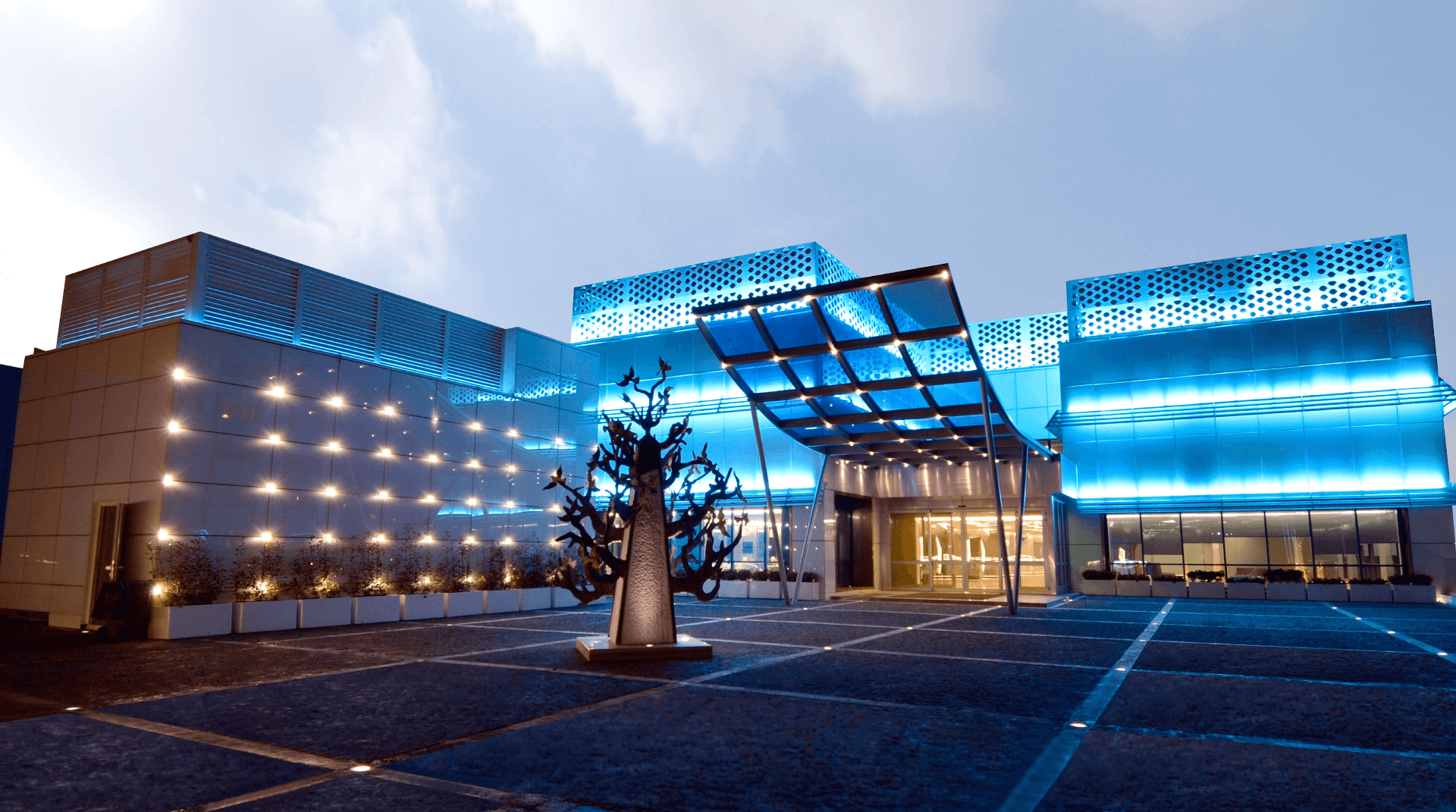
Liv Hospital is equipped with state-of-the-art surgical technology and staffed by internationally trained specialists, making it a leading destination for Parkinson’s disease treatment in Turkey. Renowned neurologists Dr. Mete Karatay and Dr. Muhittin Emre Altunrende provide expert care through personalized treatment plans that combine advanced surgical options, medication management, and rehabilitation. Their patient-focused approach, supported by Liv Hospital’s modern infrastructure and high medical standards, makes it one of the most trusted centers for individuals seeking effective and compassionate Parkinson’s disease treatment in Turkey.
Memorial Hospital
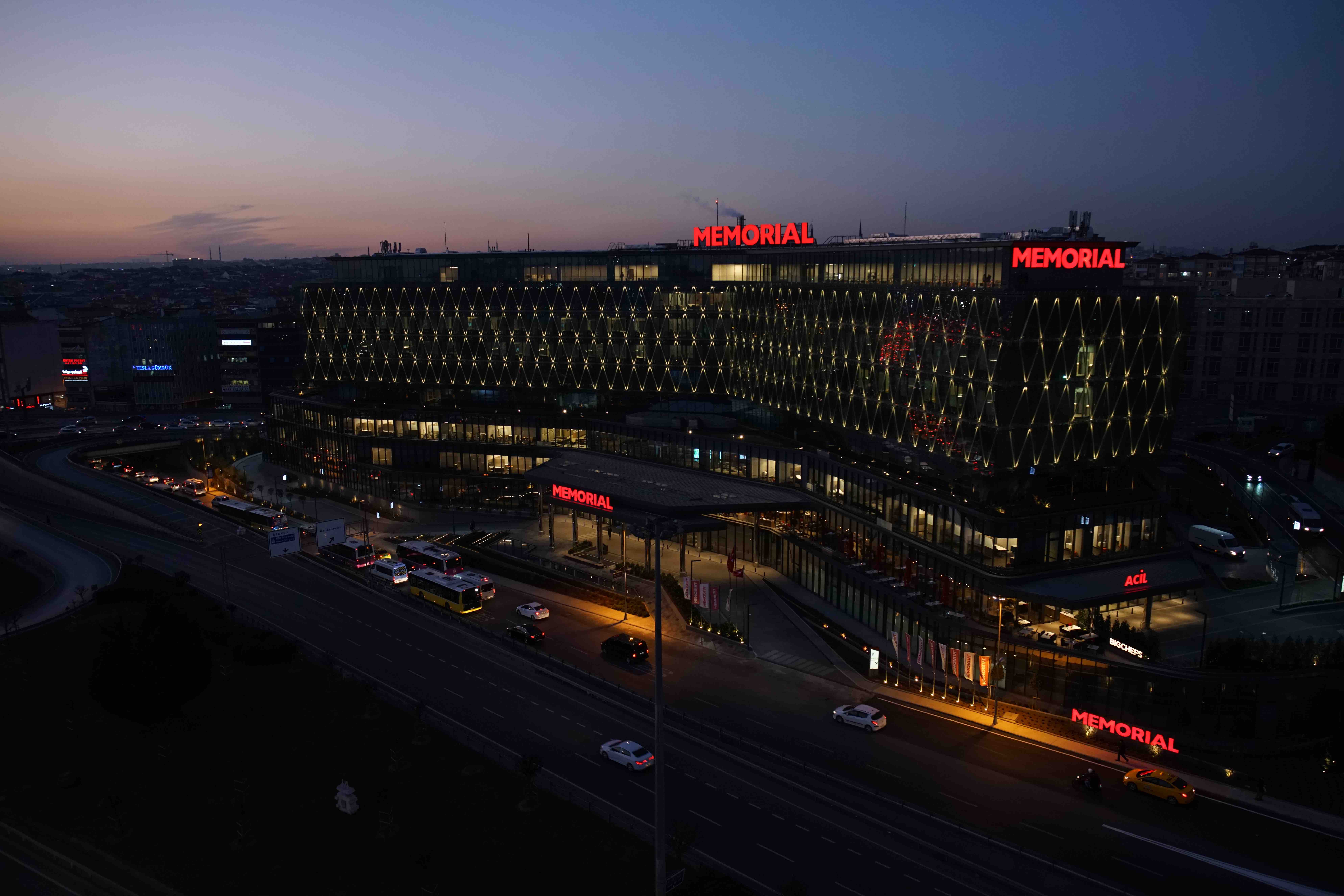
Memorial Hospital offers comprehensive and structured neurology programs that integrate diagnosis, medication, and rehabilitation therapy for effective Parkinson’s disease treatment in Turkey. As a JCI-accredited and research-oriented institution, Memorial ensures the highest standards of medical quality and patient safety. Its expert neurology team uses evidence-based approaches and advanced technologies to manage complex cases, providing individualized care for both local and international patients. With its strong focus on innovation and clinical excellence, Memorial Hospital remains one of the top choices for reliable and outcome-driven Parkinson’s disease treatment in Turkey.
Medical Park Hospitals
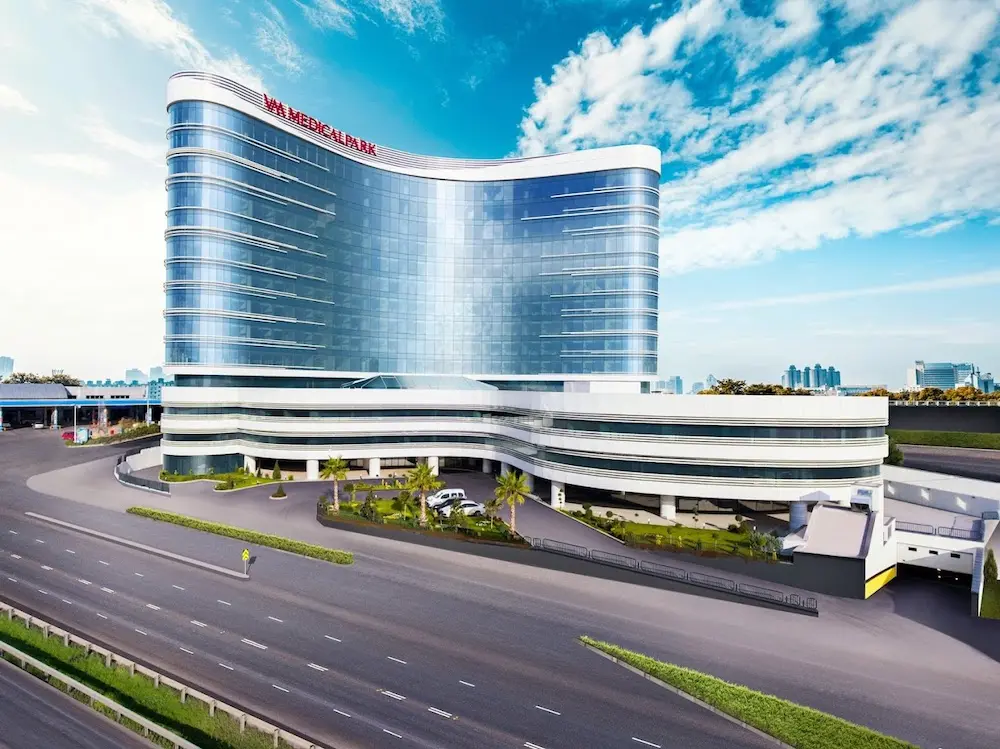
Medical Park Hospitals provide a comprehensive approach to Parkinson’s disease treatment in Turkey, integrating physical therapy, medication management, and advanced neurosurgical procedures such as Deep Brain Stimulation. Patients receive care from multidisciplinary teams of neurologists, neurosurgeons, and rehabilitation specialists who work collaboratively to address every aspect of the disease. This coordinated model ensures continuity, precision, and long-term improvement, making Medical Park Hospitals one of the most trusted healthcare networks for holistic and effective Parkinson’s disease treatment in Turkey.
Acibadem Healthcare Group

Acibadem Healthcare Group is widely recognized for its modern infrastructure, internationally certified specialists, and excellence in Parkinson’s disease treatment in Turkey. The hospital network offers personalized treatment plans tailored to each patient’s condition, supported by advanced diagnostic technologies and evidence-based care. With several branches equipped for Deep Brain Stimulation (DBS) and long-term neurological management, Acibadem ensures patients receive comprehensive, safe, and high-quality care throughout every stage of their Parkinson’s disease treatment in Turkey.
Lokman Hekim Health Group
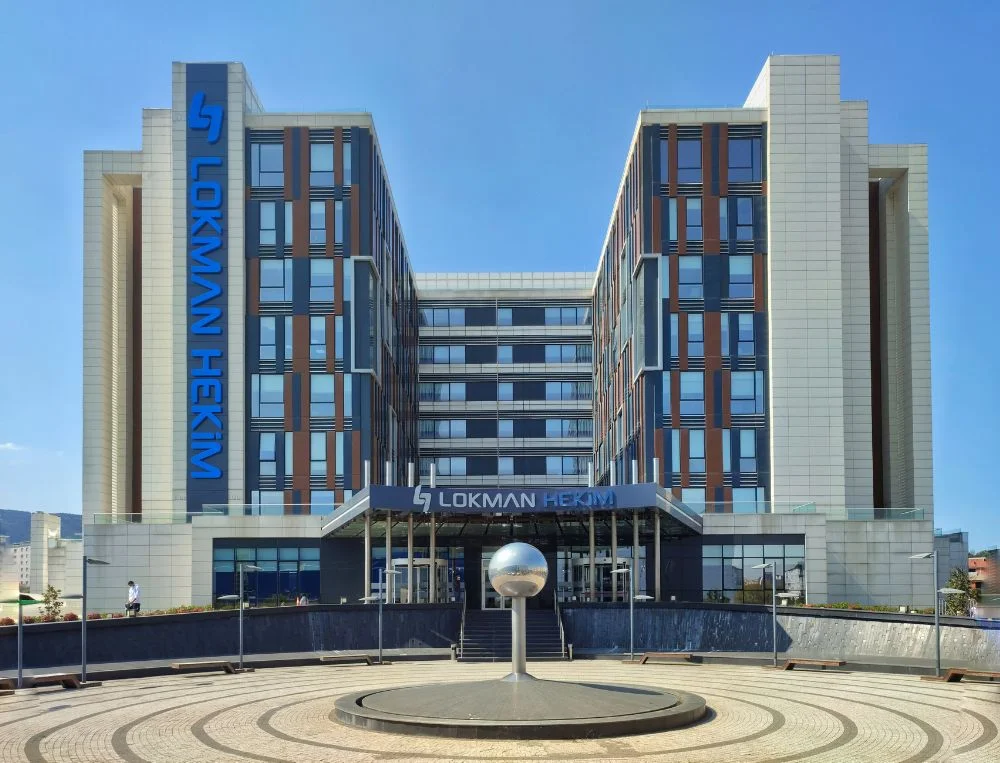
Lokman Hekim Health Group is recognized for providing practical and cost-effective solutions in Parkinson’s disease treatment in Turkey. With a strong emphasis on accessibility, efficiency, and patient-centered care, the network offers structured treatment programs that combine medical therapy, rehabilitation, and ongoing monitoring at affordable prices. Its modern facilities and experienced neurology teams make Lokman Hekim an excellent choice for patients seeking reliable and well-organized Parkinson’s disease treatment in Turkey without excessive costs.
Cost of Parkinson’s Treatment in Turkey
Cost is a major factor for patients, especially for long-term conditions like Parkinson’s. In Turkey, the cost of Parkinson’s treatment is significantly lower than in Europe or the United States. Medication, consultations, and therapy programs typically cost between 2000 and 5000 USD per year.
Deep Brain Stimulation surgery costs vary depending on the system and hospital. Prices range from 18750 to 25000 USD and include hospital stay, surgery, anesthesia, and post-operative care. Compared to international prices, this represents excellent value without sacrificing quality.
Patients can also benefit from bundled treatment packages. These packages are transparent and include all essential services, reducing the risk of hidden costs.
Comparing Parkinson’s Treatment in Turkey vs. Europe and the US
Patients choosing Parkinson’s treatment in Turkey benefit from a balance of affordability, speed, and medical excellence. In the United States, DBS can cost upwards of 60000 USD. In Germany or the UK, the price ranges from 35000 to 50000 USD. In Turkey, the same procedure is available for less than half that cost.
Wait times are another key factor. In many European countries, surgery may be delayed due to public health scheduling. In Turkey, the process is much faster. Patients can undergo diagnosis, evaluation, and surgery within weeks.
Medical quality is not compromised. Turkish hospitals use the same international systems, follow evidence-based protocols, and operate under strict quality standards.
Read: Best Parkinson's Disease Treatment Centers and Countries
Success Rate and Patient Outcomes in Turkish Hospitals
Success rates in Turkish hospitals reflect global standards. For Deep Brain Stimulation, over 70 percent of patients report a significant improvement in motor symptoms. Many are able to reduce their medication dose and regain greater independence.
These outcomes are not random. They result from structured patient evaluation, careful surgical planning, and active post-treatment rehabilitation. Turkish hospitals invest in follow-up care to maintain results and adjust treatment as needed.
Patient satisfaction is high, especially among international patients who receive coordinated care and clear communication throughout the process.
How to Choose the Right Hospital for Parkinson’s Treatment in Turkey
Choosing the right hospital for Parkinson's disease treatment in Turkey involves more than price. Look for international accreditation such as JCI, which confirms that a hospital meets high standards in patient safety and medical quality. Also consider the availability of advanced technologies like DBS and neuroimaging.
Check the credentials of the neurology team. Doctors should have experience in treating Parkinson’s and performing related procedures. Hospitals that publish research or participate in clinical trials often maintain higher standards.
Use the hospital’s international patient service to ask detailed questions. Good hospitals will provide treatment plans, doctor profiles, and cost estimates before your trip.
Why International Patients Prefer Turkish Neurology Centers
International patients often choose neurology centers in Turkey because of their efficiency, affordability, and comprehensive care. Hospitals offer full-service support, from airport pickup to translation and follow-up care.
Doctors are fluent in English and experienced in cross-border healthcare. Patients receive quick responses and accurate diagnoses without long delays or confusing referral systems.
The comfort of having all services under one roof neurology, surgery, rehab, diagnostics simplifies the process. This makes it easier for patients to focus on recovery.
Treatment Journey for International Patients with A-Medical
For international patients seeking Parkinson’s treatment in Turkey, A-Medical provides a seamless and fully guided process. Our goal is to ensure clarity, comfort, and safety at every step.
Step 1: Free Online Consultation
Patients begin with a free medical consultation. During this stage, A-Medical reviews previous medical reports, MRI results, medication history, and current symptoms. Our medical coordinators and neurologists assess the patient’s condition and discuss treatment possibilities, including medication adjustment, neurorehabilitation, or Deep Brain Stimulation (DBS) if appropriate.
Step 2: Personalized Medical Treatment Plan
After the evaluation, the patient receives a personalized treatment plan prepared by certified neurologists and neurosurgeons in leading hospitals such as NP Istanbul Brain Hospital, Liv Hospital, Acibadem, Memorial, Medicana, and Medical Park. The plan includes treatment strategy, procedure details, estimated duration of stay, and full cost transparency.
Step 3: Travel and Arrival Coordination
A-Medical arranges airport pickup, local transportation, and accommodation. A dedicated medical coordinator accompanies the patient throughout appointments, therapy sessions, and hospital visits to ensure smooth communication and comfort.
Step 4: Treatment and Rehabilitation in Turkey
The patient begins treatment according to the approved plan. This may include medication optimization, neurorehabilitation, DBS surgery, or other therapies. A-Medical provides continuous support throughout the hospitalization and recovery period.
Step 5: Post-Treatment Follow-Up and Remote Support
After returning home, patients receive scheduled online follow-up consultations. For DBS patients, device programming and medication adjustments continue through secure remote sessions.
Why Choose A-Medical for Organizing Parkinson’s Treatment in Turkey
A-Medical works with top neurology hospitals and certified specialists across Turkey. Patients benefit from fast appointment scheduling, verified treatment plans, and transparent pricing. The goal is to provide safe, effective, and stress-free medical travel. A-Medical helps patients choose the right hospital based on their condition, budget, and expectations. Services include:
- Matching with the right doctors and hospitals
- Organizing travel, translation, and post-treatment support
Many patients highlight A-Medical’s personal attention and expert coordination as key reasons for their successful treatment journey. The company’s medical advisors monitor each case closely, ensuring that the patient receives appropriate care at every step.
